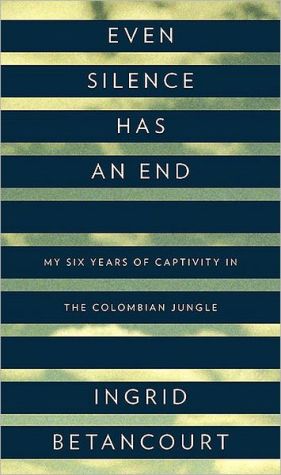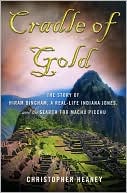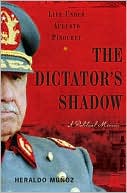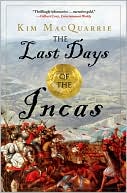Death in Brazil: A Book of Omissions
So Begins Peter Robb's Exhilarating Encounter with one of the most beautiful and seductive places on earth. Combining travel, culture, and personal reminiscence, the author of Midnight in Sicily takes the reader on a wild ride through five hundred years of history that begins with the sexual intoxication of Portuguese settlers and ends with the surprise election of the charismatic Lula, Brazil's first working-class president. Delving into the country's baroque past, Robb examines the legacy...
Search in google:
Combining travel, history, culture, and his own memories of twenty years of Brazilian life, the author of Midnight in Sicily delves into the past and present of a country that affects our imagination like few other places on earthFrom his own near murder in Rio at the hands of an intruder twenty years ago and continuing through the recent slaying of a former president's bagman who looted the country of more than a billion dollars, violent death poses a steady threat in Peter Robb's brilliant travelogue through modern-day Brazil. It's not death, however, that leaves a lasting impression but the exuberant life force that emanates from the country and its people. Seeking to understand how extreme danger and passion can coexist in a nation for centuries, Robb travels from the cobalt blue shores of southern Brazil to the arid mountains of the northeast recounting four centuries of Brazilian history from the days of slavery to the recent election of the country's first working-class president. Much more than a journey through history, Robb renders in vivid detail the intoxicating pleasures of the food, music, and climate of the country and references the work of Brazil's greatest writers to depict a culture unlike any other. With a stunning prose style and an endlessly inquisitive intellect, Robb builds layer upon layer of history, culture, and personal reminiscence into a deeply personal, impressionistic portrait of a nation. The reader emerges from A Death in Brazil not just with more knowledge about the country but with a sense of having experienced it and with a deep understanding of its turbulent soul. The New Yorker One night twenty years ago in Rio de Janeiro, the author was attacked by a knife-wielding burglar, who then broke down and stayed until dawn, unburdening his soul. Robb became fascinated with Brazil, and here offers a seductive synthesis of history, gastronomy, literature, pop culture, and current events. He is most drawn to the landscape of the northeast. Once home to communities of escaped slaves, the region has, more recently, produced such figures as the disgraced President Fernando Collor de Mello, who was impeached in 1992, and Luis (Lula) Inácio da Silva, a former metalworker who was elected President a decade later. Between the mouthwatering dishes and caipirinhas, Robb explores the extreme contrasts of wealth and poverty, beauty and brutality—tens of thousands of violent deaths each year—in what he considers the “most thrilling country in the Western Hemisphere.”
From A Death in Brazil:\ Murders happen anywhere and mine most nearly happened in Rio. Twenty years later only the scar of a small knife wound on my arm reminds me this is a memory and not a dream. The night went on and on like a dream, with a dream's ungraspable logic, or a Brazilian soap's. Details become wonderfully vivid, like the old carving knife with a long curved and darkened blade carelessly left earlier on the kitchen bench of the Copacabana flat, in the moment it was being held at my throat. My Portuguese lost its rudimentary awkwardness and became unreally fluent very fast. Words I never knew that I knew came pouring from my throat. Things flowed with a dream's weightless speed. The danger lay in the speed. A flailing knife blade moves faster than thought. Movement had to be slowed, the heat lowered. It was the one thing I understood. Let nothing happen. Respond to violence, not with violence, speed, and noise, but with ponderous torpidity, envelop each new threat in slowness. The beautiful Portuguese periods began to roll, slowly, slowly, but with what baroque grace, from my amazing tongue. Obtuse fearlessness stayed the hand with the knife, impassive calm put a little wobble in the spin of violence.
IMixed Blood3IIA Cordial Man31IIIOn the Beach55IVParrot Perch81VBelow the Equator107VIStuffed Goat133VIIA World Elsewhere159VIIIA Place to Die For187IXWitnesses215XA Used Revolver241XIIn Maceio265XIIA Win289Sources and Readings309A Chronology317
\ New York TimesA Death in Brazil is not strictly about travel. It deals with Brazil's history, landscapes, society, culture, food and the baroque flamboyance of its political life...Mr. Robb writes about his themes not as a scholar or analyst but as if he were trekking through them hungrily, strenuously and sometimes at risk.—Richard Eder\ \ \ \ \ The New YorkerOne night twenty years ago in Rio de Janeiro, the author was attacked by a knife-wielding burglar, who then broke down and stayed until dawn, unburdening his soul. Robb became fascinated with Brazil, and here offers a seductive synthesis of history, gastronomy, literature, pop culture, and current events. He is most drawn to the landscape of the northeast. Once home to communities of escaped slaves, the region has, more recently, produced such figures as the disgraced President Fernando Collor de Mello, who was impeached in 1992, and Luis (Lula) Inácio da Silva, a former metalworker who was elected President a decade later. Between the mouthwatering dishes and caipirinhas, Robb explores the extreme contrasts of wealth and poverty, beauty and brutality—tens of thousands of violent deaths each year—in what he considers the “most thrilling country in the Western Hemisphere.”\ \ \ Publishers WeeklyThe death of the title refers to a recent event, but Times Literary Supplement writer Robb gets his mysterious subtitle most directly from Machado de Assis, a 19th-century Brazilian novelist considered at length for his ability to weave discussion of the nation's racial and economic disparities into his wildly popular serial fictions for women's magazines. The term's origins, however, are biblical; First and Second Chronicles were called "Omissions" because they contained information left out of the preceding Books of Kings. Although Robb tries to fill in some of the gaps in recent Brazilian history, he doesn't so much uncover new data on the spectacularly corrupt 1990-1992 presidency of Fernando Collor as pull together some of the many disparate sources. Collor's rise and fall, and the murder of his chief henchman, form a solid backbone for the book, but one from which Robb frequently wanders to ruminate on centuries of Brazilian history filled with eroticism and violent upheaval. He also recounts his own travels through modern Brazil, devoting as much attention to the sensual delights of buchada de bode (stuffed goat's stomach) as he does to a threatening encounter with the military police. The overall result is a bit of a jumble, but it's a delightful jumble: a Midnight in the Garden of Good and Evil with a Latin beat. At various points, Robb compares the unfolding Collor scandal to the soap opera staples of Brazilian television, and he's managed to capture the story's lurid surrealism with a deft, erudite touch. Copyright 2004 Reed Business Information.\ \ \ \ \ Library JournalThe motivation for Robb's latest work is unclear; perhaps he was in pursuit of a story as absorbing and darkly disturbing as his Midnight in Sicily, which he certainly found. Robb left Naples for Brazil's northeastern territory of Pernambuco, where he restricted his travels to the towns of Recife, Maceio, and Palmares, a viper's triangle of Brazil's corrupt ruling elite and home of Fernando Collor de Mello, who in 1990 became Brazil's first democratically elected president in 29 years (he would resign two years later over charges of corruption). Using this historic event as a touchstone, Robb weaves a narrative consisting of three threads: a montage of historical flashbacks of the region; an account of his investigations of government deceit, chicanery, and murder from 1989 to the recent election of Luiz Inacio Lula da Silva ("Lula"); and a description of his travels and encounters. What the reader discovers is that the book's title is intentionally disingenuous-there have been thousands of deaths in Brazil over the years, beginning with the massacre of indigenous tribes and resistance groups to the current "disappearance" of political dissenters and street urchins. Robb's revelations of political nepotism, intrigue, and passion read like a horribly real soap opera. Recommended for all libraries.-Lonnie Weatherby, McLennan Lib., McGill Univ., Montreal Copyright 2004 Reed Business Information.\ \ \ \ \ Kirkus ReviewsUnder intellectual scrutiny from a part-time resident, the world's fifth largest country comes alive as "the oddest and most thrilling" in our hemisphere. Readers who pick this up expecting a travel guide will have to look beyond open sewers befouling pristine beaches and bags of garbage flung from apartment windows into the street where urchins sleep in cardboard boxes-and those are the lucky ones-to find Brazil's real allure. But Robb (M: The Man Who Became Caravaggio, 2000, etc.) does find it, and it runs sensuously deep and mysterious. The biggest mystery: Why is a country of such beautiful people with such variegated lushness still constantly gashed by violence, cruelty, and corruption? The source, Robb offers, is a gap between richest and poorest "six times greater than countries like China, India, and Pakistan" and perhaps unequaled anywhere. He tracks Brazil's culture of concentrated personal power and wealth from the colonial era, finding a strain of conspiratorial racism perversely at odds with a society where slavery was officially banned in 1888 and racial mixing has been energetically pursued for half a millennium. His "researches," which include an attempt (after a few Scotches in a bar) to confront a political thug suspected of several murders, reveal how a government deformed by influence peddling, corruption, and a menacing military has managed to ignore the most basic needs of traditionally disenfranchised constituents. Robb, however, views current President Lula da Silva as something of a messiah in a country where pursuit of sensual pleasures and a big lunch has thus far thwarted development of a public conscience. Fortunately for adventurous readers, a researcher ofmysteries also has to take time to nourish body and soul with things like grilled needlefish or the sumptuous polyglot bean stew called feijoada, washed down with Antarctic beer chilled to the point of freezing. An affectionate, probing cultural portrait, as stark as it is entertaining.\ \








